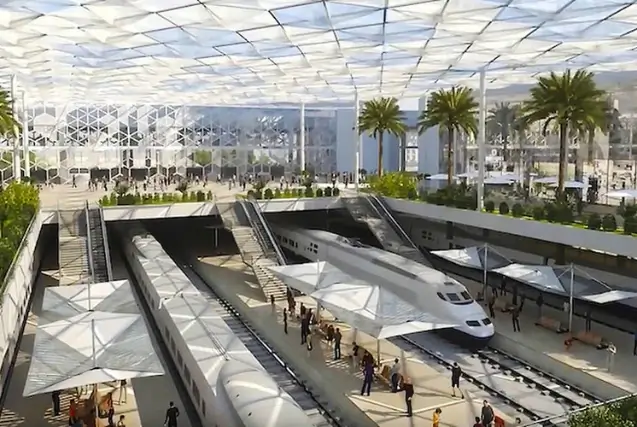Morocco is preparing to invest over 78 billion dirhams, roughly $7.5 billion, into building a clean, modern, and accessible public transportation system by 2029. This ambitious plan was outlined by Abdellatif Maâzouz, president of the Casablanca-Settat Regional Council, during a side event held in Belém, Brazil, as part of the run-up to COP30.
Out of the total investment, 11 billion dirhams will be dedicated to acquiring 3,750 next-generation buses, while the remaining 67 billion will go toward the development of high-capacity, exclusive-lane transport systems. These include new tramway lines, regional railways, and an express regional network similar to an RER system, designed to improve connectivity across urban and suburban areas.
For the Casablanca-Settat region, this massive infrastructure push builds on work already in progress. Around 25 billion dirhams have already been committed to upgrading mobility infrastructure and equipment, representing nearly 40% of the updated regional development plan’s overall budget.
The proposed system relies on a coordinated model that integrates trains and trams as its backbone, complemented by a modernized bus fleet and a new digital platform designed for multimodal travel. This platform will offer real-time traffic updates, help manage transit flows more efficiently, and make navigation easier for commuters through smart mobility solutions.
In parallel, the expansion of urban and rural road networks has already begun to show environmental benefits. Between 2023 and 2025, regional monitoring stations recorded a measurable improvement in air quality, reflecting a decrease in vehicle emissions thanks to more efficient transport systems.
Presenting the initiative, Maâzouz reaffirmed Morocco’s strong commitment to speeding up the transition to sustainable mobility. He emphasized the plan’s alignment with the country’s 2030 Low-Carbon Strategy and the 2035 National Sustainable Mobility Charter. He also highlighted the vital role of cross-regional cooperation across Africa in promoting inclusive, resilient development models capable of addressing both environmental and social challenges.





